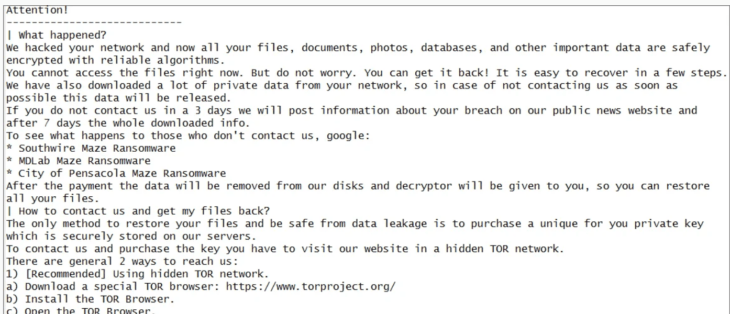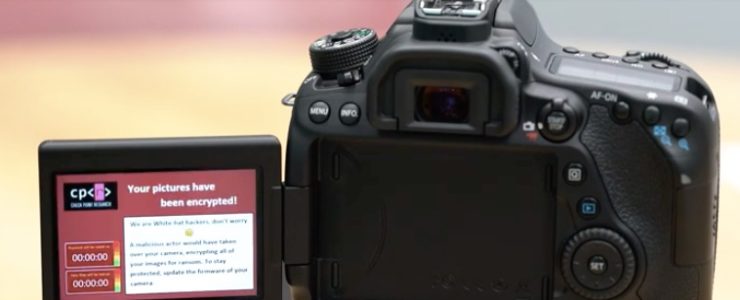Canon Officially Confirms Ransomware Attack, Says Employee Data Was Stolen
Some months ago Canon USA was victim of a ransomware hacking attack. We reported about this incident.
Canon has finally released an official statement about the hacking attack. It turns out that information concerning past and current employees was stolen by the hackers, as employees’ names, social security number, date of birth, driver’s license number, government-issued ID, bank account number, and their electronic signature.
Canon statement about the ransomware attack:
Notice of Data Security Incident
Canon understands the importance of protecting information. We are informing current and former employees who were employed by Canon U.S.A., Inc. and certain subsidiaries, predecessors, and affiliates1 from 2005 to 2020 and those employees’ beneficiaries and dependents of an incident that involved some of their information. This notice explains the incident, measures we have taken, and steps you can take in response.
We identified a security incident involving ransomware on August 4, 2020. We immediately began to investigate, a cybersecurity firm was engaged, and measures were taken to address the incident and restore operations. We notified law enforcement and worked to support the investigation. We also implemented additional security measures to further enhance the security of our network.
We determined that there was unauthorized activity on our network between July 20, 2020 and August 6, 2020. During that time, there was unauthorized access to files on our file servers. We completed a careful review of the file servers on November 2, 2020 and determined that there were files that contained information about current and former employees from 2005 to 2020 and their beneficiaries and dependents. The information in the files included the individuals’ names and one or more of the following data elements: Social Security number, driver’s license number or government-issued identification number, financial account number provided to Canon for direct deposit, electronic signature, and date of birth.
We wanted to notify our current and former employees and their beneficiaries and dependents of this incident and to assure them that we take it seriously. As a precaution, we have arranged for them to receive a complimentary membership to Experian’s® IdentityWorksSM credit monitoring service. This product helps detect possible misuse of an individual’s information and provides the individual with identity protection services. IdentityWorksSM is completely free to the individual, and enrolling in this program will not hurt the individual’s credit score. If you are a current or former employee, or the beneficiary or dependent of a current or former employee, and would like more information on IdentityWorksSM, including instructions on how to activate your complimentary membership, please call our dedicated call center for this incident at 1-833-960-3574. For information on additional steps you can take in response, please see the additional information provided below.
We regret that this occurred and apologize for any inconvenience. If you have additional questions, please call 1-833-960-3574, Monday through Friday, between 9:00 a.m. and 6:30 p.m., Eastern Time.
1This notice is being provided by or on behalf of Canon U.S.A., Inc. and the following subsidiaries, predecessors, and affiliates: Canon BioMedical, Inc., Canon Business Solutions-Central, Inc., Canon Business Solutions-Mountain West, Inc., Canon Business Solutions-NewCal, Inc., Canon Business Solutions-Tereck, Inc., Canon Business Solutions-West, Inc., Canon Development Americas, Inc., Canon Financial Services, Inc., Canon Information and Imaging Solutions, Inc., Canon Information Technology Systems, Inc., Canon Latin America, Inc., Canon Medical Components U.S.A., Inc., Canon Software America, Inc., Canon Solutions America, Inc., Canon Technology Solutions, Inc., Canon U.S. Life Sciences, Inc., NT-ware USA, Inc., Océ Imaging Supplies, Inc., Océ Imagistics Inc., Océ North America, Inc., Océ Reprographic Technologies Corporation, and Virtual Imaging, Inc.
ADDITIONAL STEPS YOU CAN TAKE
We remind you it is always advisable to be vigilant for incidents of fraud or identity theft by reviewing your account statements and free credit reports for any unauthorized activity. You may obtain a copy of your credit report, free of charge, once every 12 months from each of the three nationwide credit reporting companies. To order your annual free credit report, please visit www.annualcreditreport.com or call toll free at 1-877-322-8228. Contact information for the three nationwide credit reporting companies is as follows:
- Equifax, PO Box 740241, Atlanta, GA 30374, www.equifax.com, 1-800-685-1111
- Experian, PO Box 2002, Allen, TX 75013, www.experian.com, 1-888-397-3742
- TransUnion, PO Box 2000, Chester, PA 19016, www.transunion.com, 1-800-916-8800
If you believe you are the victim of identity theft or have reason to believe your personal information has been misused, you should immediately contact the Federal Trade Commission and/or the Attorney General’s office in your state. You can obtain information from these sources about steps an individual can take to avoid identity theft as well as information about fraud alerts and security freezes. You should also contact your local law enforcement authorities and file a police report. Obtain a copy of the police report in case you are asked to provide copies to creditors to correct your records. Contact information for the Federal Trade Commission is as follows:
- Federal Trade Commission, Consumer Response Center, 600 Pennsylvania Avenue NW, Washington, DC 20580, 1-877-IDTHEFT (438-4338), www.ftc.gov/idtheft




